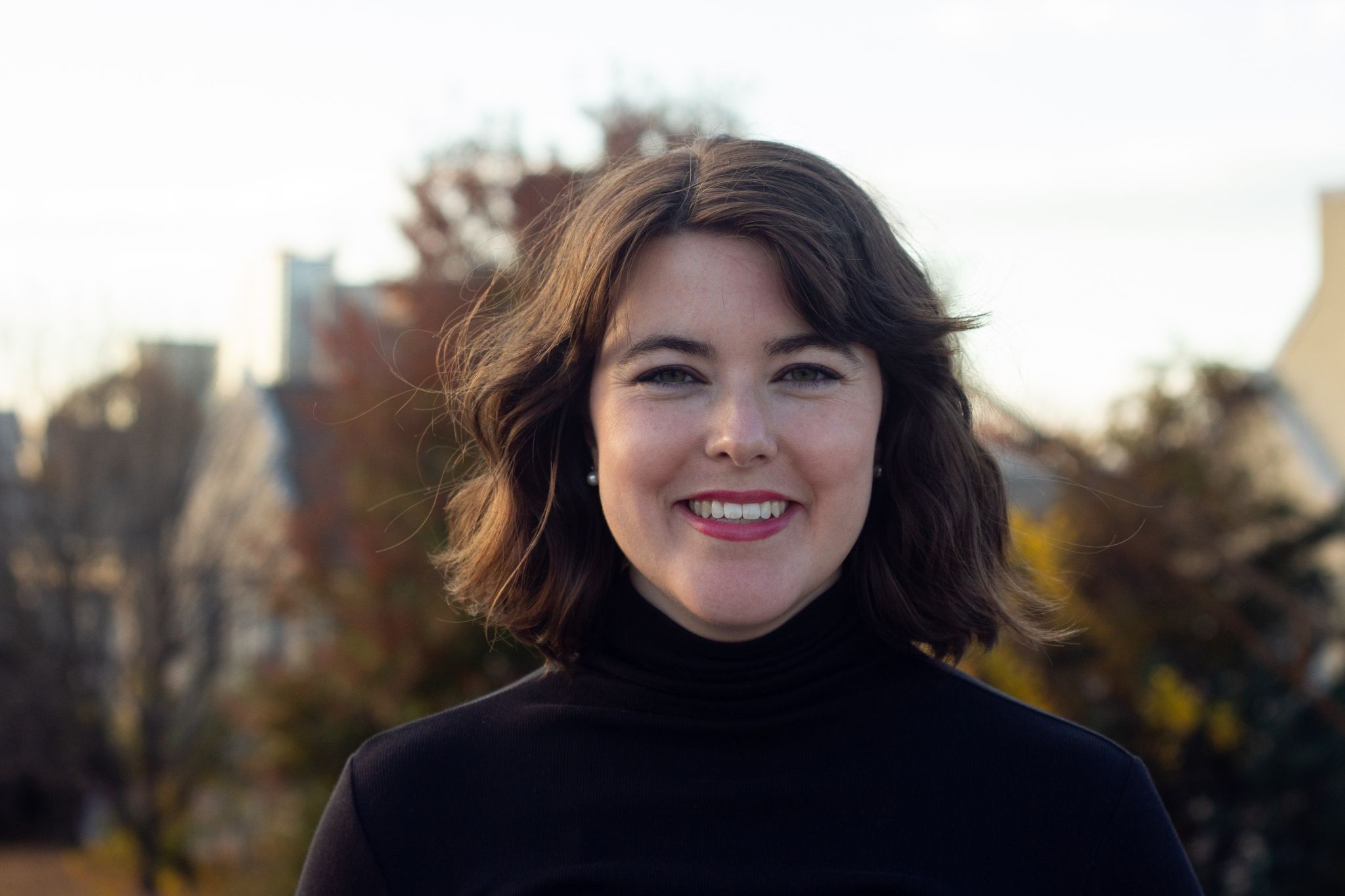
About Me

The way we move through space unequivocally shapes our lives. Rachael wants to make sure it’s for the better.
Rachael Thompson Panik, AICP, PhD (she/her) is a transportation safety researcher. Rachael's research is motivated by one of the most pressing public health crises in the United States: each year, ~40,000 people die preventable deaths from traffic crashes. A disproportionate number of these deaths are people biking and walking -- the most accessible and climate-friendly means of transportation. These unacceptable realities of traveling in the U.S. direct Rachael's research agenda towards preventing roadway crashes in a system that is socially and physically complex.
Rachael grew up northern Alabama, but she fell in love with urban places riding trains in Tokyo while visiting Japan as a student ambassador. Since then, she’s spent the rest of her education learning about urban places, their complexity, and how people move around them. Rachael received a bachelor’s degree in civil engineering and Japanese from the University of Alabama at Birmingham (UAB). While at UAB, her college mentors encouraged her to embrace a broadened education, directing her towards volunteering and advocacy in Birmingham. Those experiences compelled her to obtain a master's degree in City and Regional Planning from Clemson University, where she wrote a thesis on bicycle safety, catalyzing her career in multimodal safety.
After graduating, Rachael practiced as a multimodal transportation planner and engineer for several years, working in communities all over the U.S. This work clarified for her the inequities built into the transportation system, especially for people biking and walking. To better understand traffic crashes and direct research-based safety interventions, Rachael obtained her PhD in Transportation Systems Engineering from the Georgia Institute of Technology.
Her dissertation focused on two major barriers to effective safety planning among transportation agencies: (1) non-motorized volume estimation to inform risk, and (2) attitudes towards safety. Both of these research areas form the base of her research agenda: identifying and fixing "upstream" causes of poor safety outcomes. Rather than studying crashes themselves, she explores the often overlooked decision-making barriers that preclude effective planning of safe systems. Recent examples of this work include Bayesian estimation of traffic volumes and risk, traffic safety paradigms, and attitudes towards safety among the future workforce. See more on the publications page.
President's Postdoctoral Fellow
Georgia Institute of Technology | School of Civil and Environmental Engineering
(2024 - present)
Research Topic: Attitudes towards safety among the future transportation workforce.
Graduate Research Assistant
Georgia Institute of Technology | PhD Student & Candidate
(2020 - 2024)
Research Topics: Safe systems and injury prevention; Safety knowledge among engineering students; Vulnerable road user safety; Non-motorized travel volumes; Bayesian modeling applied to traffic surveillance; Mobility during COVID-19 pandemic; Multimodal travel behavior
Graduate Teaching Assistant
Classes: Multimodal Transportation Engineering (co-instructor) | Sustainable Transportation Abroad (teaching assistant
Past Education
Clemson University
(2016 – 2018) Magna Cum Laude
Master’s Degree in City and Regional Planning | Transportation Planning Focus | Edward McCallum Scholar |
University of Alabama at Birmingham
(2012 – 2016) Magna Cum Laude
Bachelor’s Degree in Civil Engineering | Minor in Japanese Language and Culture | Structural Engineering Focus | Magna Cum Laude | Experiential Learning Scholar
Work Experience
Safe Streets Research and Consulting
(2023 – 2024)
Bicycle and Pedestrian Safety Researcher with the leading multimodal safety research firm.
Toole Design Group
(2017 – 2020)
Progressed from intern to full-time position as a Planner II and Engineer in the firm’s Spartanburg, SC office.
Macknally Land Design (2016)
Engineering and CAD intern with the prominent landscape architecture and design firm in Birmingham, AL.
 Rachael T. Panik
Rachael T. Panik